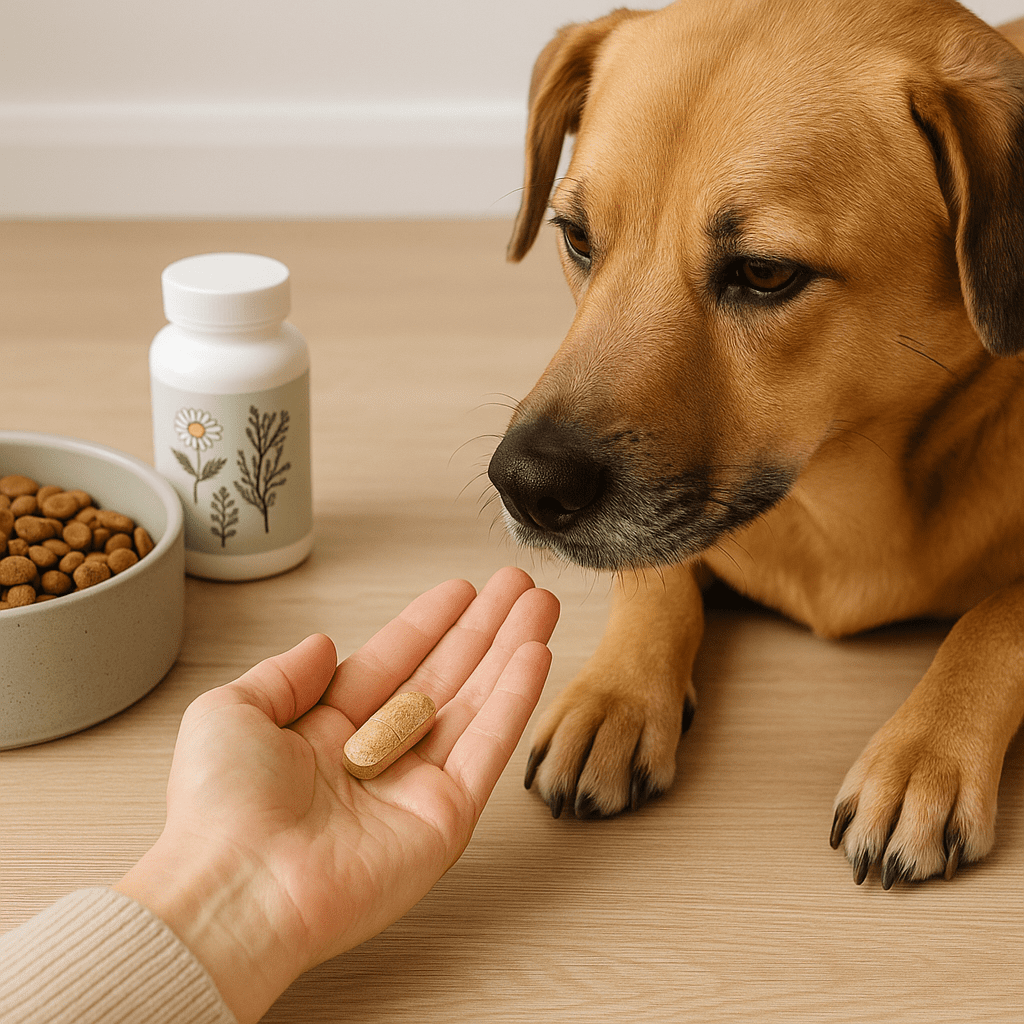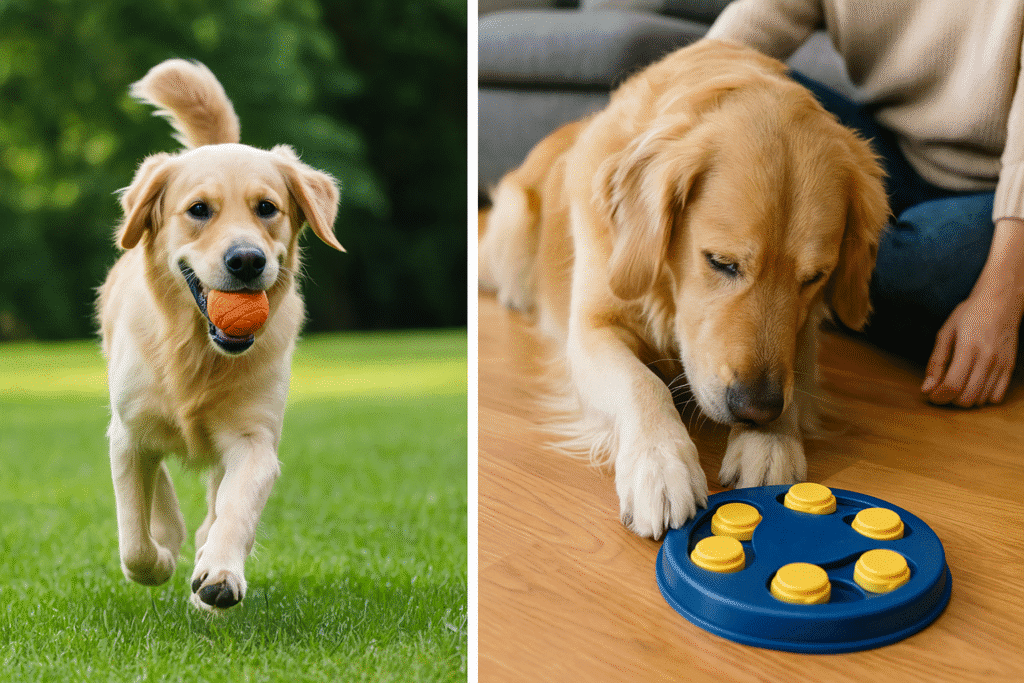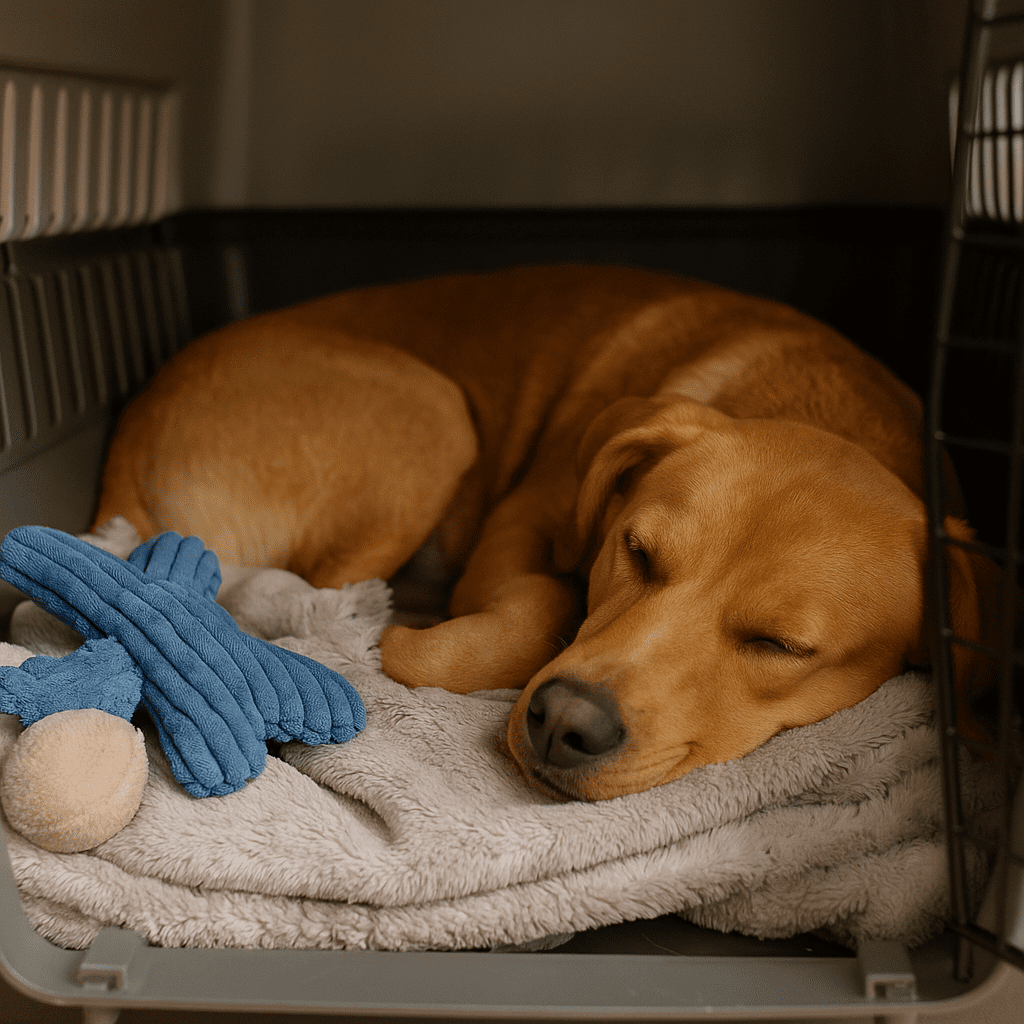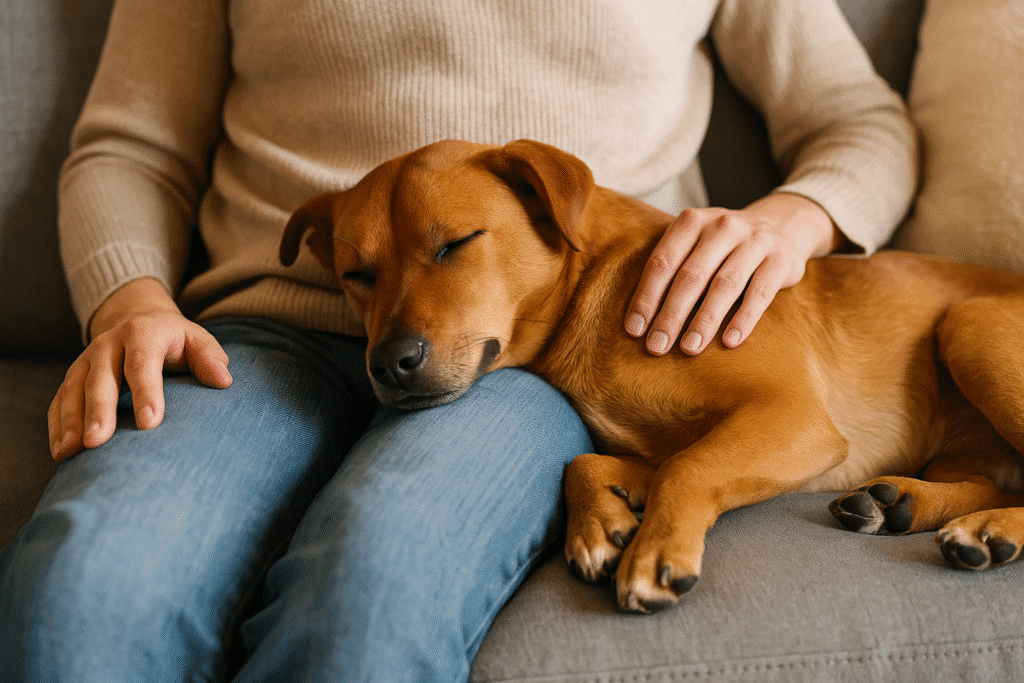Looking for natural remedies for dog anxiety? Discover five safe and effective solutions—from supplements to training tips—that help reduce stress and calm your dog without heavy medications. Perfect for owners who want holistic, vet-approved options to support their anxious pup.
Introduction
Dogs experience anxiety for many reasons—separation from their owners, loud noises, unfamiliar environments, or past trauma. While veterinary medications exist, many owners prefer natural remedies for dog anxiety as a first step. In this article, we explore five proven solutions that promote calmness, improve behavior, and support your dog’s overall well-being.
(Outbound link: Learn more about canine anxiety from VCA Hospitals: Separation Anxiety in Dogs)

1. Calming Supplements & Herbs
Many natural supplements support relaxation in dogs. Ingredients such as chamomile, valerian root, L-theanine, and melatonin are often used. Veterinary-approved calming chews can be a safe and effective way to manage anxiety without sedatives.
(Internal link: For more holistic care, see our guide on Dog Probiotics for Gut Health.)
Usage Tips
- Always consult your vet before introducing new supplements.
- Start with low doses to monitor your dog’s reaction.
- Use only products specifically formulated for dogs.
2. Exercise and Mental Stimulation
Regular physical activity helps release pent-up energy and stress. Daily walks, play sessions, and puzzle toys can significantly reduce anxiety levels. A tired dog is often a calmer dog.
(Internal link: Learn more in our Guide to Leash Walking Without Pulling.)

3. Music and Sound Therapy
Studies show that calming music—especially classical music or special pet-calming playlists—can reduce barking, pacing, and restlessness. White noise machines also help mask triggers like fireworks or thunderstorms.
4. Comfort Through Routine and Safe Spaces
Dogs thrive on consistency. Establish a daily routine for meals, walks, and playtime. Providing a “safe space,” such as a crate with cozy bedding or a quiet corner, gives anxious dogs security and comfort.
(Internal link: For crate tips, read our Crate Training Puppies Guide.)
5. Positive Reinforcement & Training
Training helps build confidence and reduce anxiety triggers. Use positive reinforcement techniques to reward calm behavior. Desensitization and counter-conditioning can gradually reduce fear responses to specific triggers.
(Internal link: See our Recall Training for Dogs Guide for positive reinforcement strategies.
When to See a Veterinarian
Natural remedies are a great first step, but severe anxiety may require professional help. Consult a veterinarian if your dog’s anxiety leads to destructive behavior, aggression, or health issues.
(Outbound link: More information on treatment options can be found at VCA Hospitals: Anxiety in Dogs.)

Frequently Asked Questions (FAQ)
- What are the safest natural remedies for dog anxiety?
Herbs like chamomile and valerian, calming supplements, and consistent routines are generally safe. - Can exercise really reduce anxiety?
Yes. Physical activity helps dogs burn energy and release feel-good hormones that calm the nervous system. - Is CBD oil safe for dogs?
CBD is popular, but quality and safety vary. Always consult your veterinarian before use. - How do I know if my dog’s anxiety is severe?
Signs include constant pacing, destructive behavior, and refusal to eat or sleep. - Do natural remedies replace medication?
Not always. They work best for mild to moderate anxiety but may complement prescribed treatments for severe cases.
Conclusion
Managing anxiety doesn’t always require heavy medication. These five natural remedies for dog anxiety—supplements, exercise, music, routine, and training—offer safe, effective ways to calm your pet and improve their quality of life.
Call to Action
Want more holistic care tips? Explore our complete Pet Health section here.

